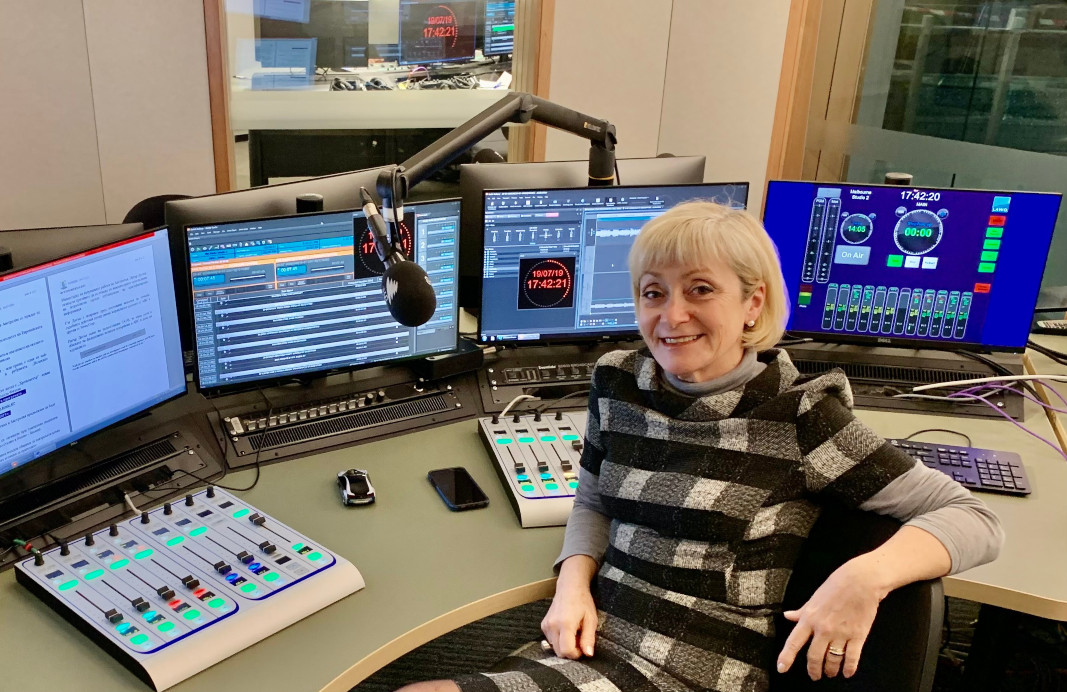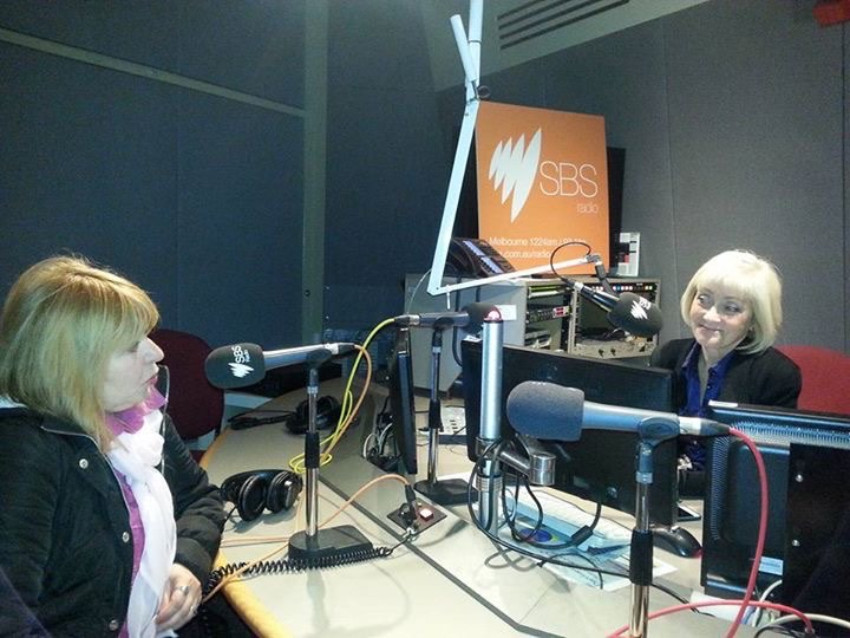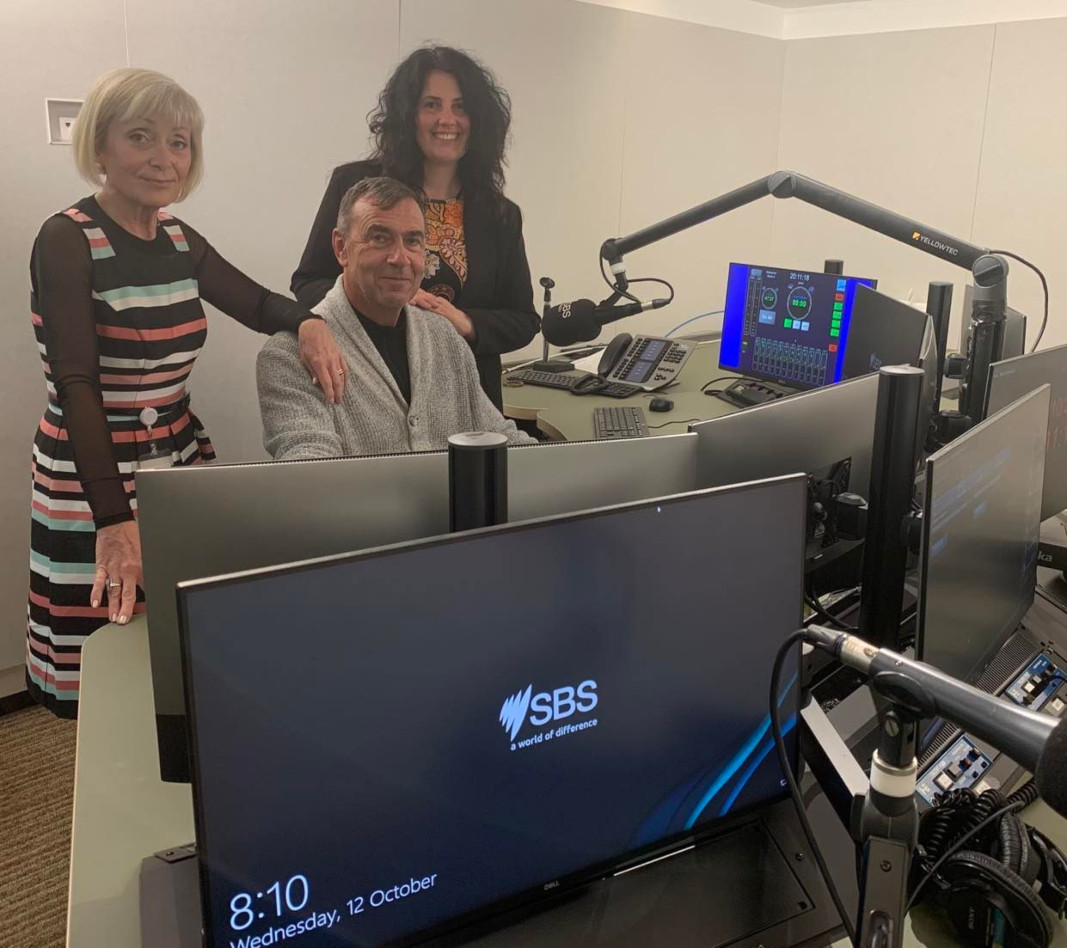 4
4
These days, the Bulgarian community in Australia is celebrating 45 years since the first time Bulgarian speech was broadcast on the Australian National Radio SBS (Special Broadcasting Service). The year was 1977, and from the studio in Melbourne the broadcasts in Bulgarian language for our compatriots in the distant continent began. The program quickly gained popularity across Australia. SBS Radio broadcasts in all 68 languages spoken on the continent. The Bulgarian community in Australia is among the smallest in the country, but it is united and has not lost touch with its distant homeland.
According to official data, about 2,000 Bulgarians live in Australia, but unofficially their number exceeds 12,000. The reason is that in the population census, the main criterion is what language is spoken at home. However, a large number of people have mixed marriages and communicate in English at home. "But what we know as journalists is that in every big city there is a Bulgarian organization that registers members, conducts many activities and has a good idea of how many Bulgarians live in the individual states. And their number seriously exceeds the official figures”, says Filli Ladgman, executive director of the Bulgarian section of SBS which reaches the audience in the farthest corners of the continent.

The Bulgarian broadcasts are distributed both on short and long waves, but also on digital frequencies. In addition, the programmes are also uploaded as a podcast. News from Australia and Bulgaria, interesting interviews with our compatriots, as well as commentaries on current affairs programmes can also be found as separate podcasts on the Bulgarian-language website of SBS. Some of them are accompanied by text in Bulgarian and English.
"Based on the analyzes related to visits to our social platforms, our website, etc., we report that almost 90% of our compatriots in Australia listen to the Bulgarian programme," says Philly Ladgman and adds:

"In the last 10 years or so, there has been an awakening of the Bulgarian communities. People look for ways to celebrate holidays together, folk groups are created where they dance and sing together. In Melbourne, for example, there are two such folk groups, in Sydney - there are also two. These are spontaneous organizations on a voluntary basis. Some of them deal with donations, others help newcomers to settle, i.e. there is a very active volunteer work that is being carried out and that shows this togetherness of Bulgarians in Australia."
According to Fili Ladgman, Bulgarians in Australia with average and higher financial capabilities travel to Bulgaria almost every year, despite the thousands of kilometres away and the expensive plane tickets. Because they love their country. And when they return to their homeland, they want to travel around the country. Many bring their children to introduce them to their Bulgarian roots and rich cultural and historical heritage. But politics is the topic that most excites our compatriots in Australia:

"Bulgarians abroad, including Bulgarians in Australia, in my opinion, are only a small picture of all Bulgarians in Bulgaria,” says Filli Ladgman.
“I was recently in Bulgaria and I know that wherever a person goes, be it with friends, acquaintances, neighbours, the topic is one and the same - politics. It figures in all conversations. It's the same here. Bulgarians in Australia are very interested in what is happening in the political life of Bulgaria - who governs, why and how they govern... Because this is not only their homeland, but the place where their friends and relatives live, with whom these people are still connected. Our audience is also very interested in the successes of Bulgarians in the field of art and culture. It is interesting to hear when new Bulgarian books are published or when there is an interesting concert somewhere."
Radio Bulgaria wishes the colleagues from the Bulgarian section of SBS inspiration in their mission to be the voice of our compatriots in Australia and their spiritual connection with their Motherland!
Photos: Filli Ladgman
A Christmas tree with Bulgarian decorations has been placed in a central location at the Griffin Museum of Science and Industry in Chicago. For the fifth consecutive year, Bulgarians living in Chicago crafted the lavish decoration of the Bulgarian..
The usurpation of cultural heritage is one of the many inevitable consequences of any military conflict, both historically and today. Until the end of the war in Ukraine, it is impossible to adequately analyse the extent of the damage caused to the..
Athens plans to modernise the Greek army by 2030 Greece's Defence Minister Nikos Dendias presented the plan for changes in the army to the parties in parliament. The reforms will cover all three branches of the military. By 2030, 33 units..
The traditional Bulgarian Christmas picnic, organized by the Bulgarian Cultural and Social Association "Rodina - Sydney" and the Bulgarian School..

+359 2 9336 661
